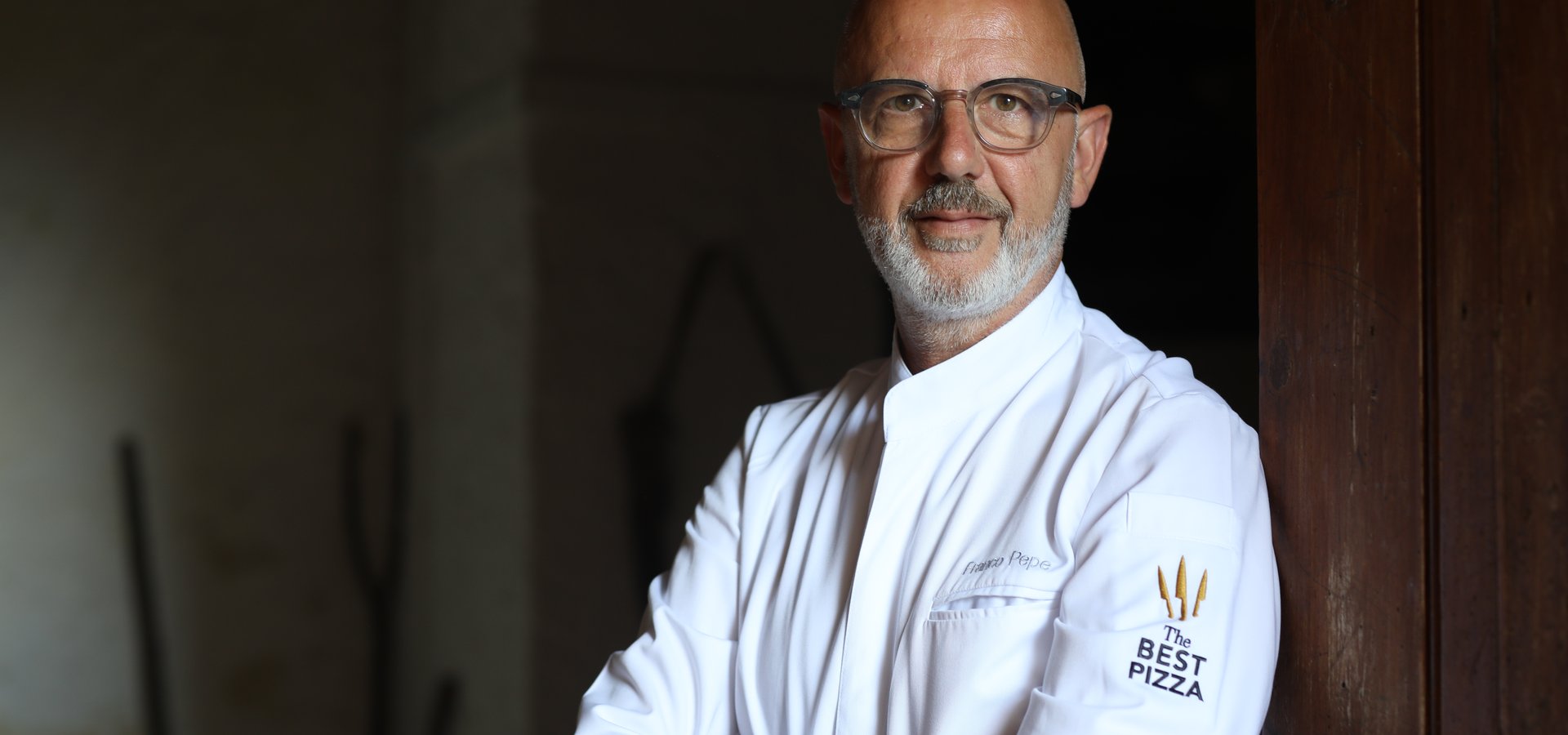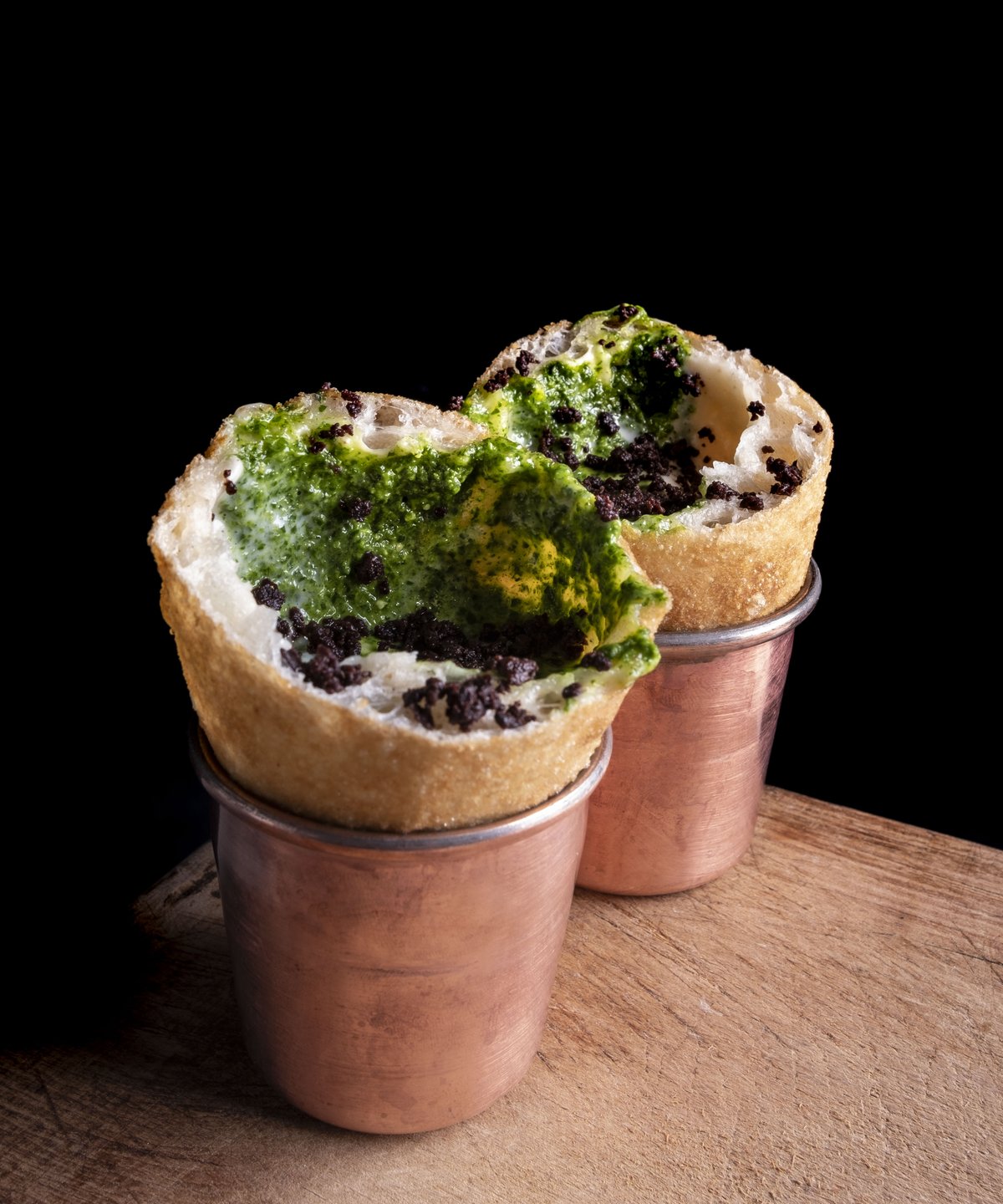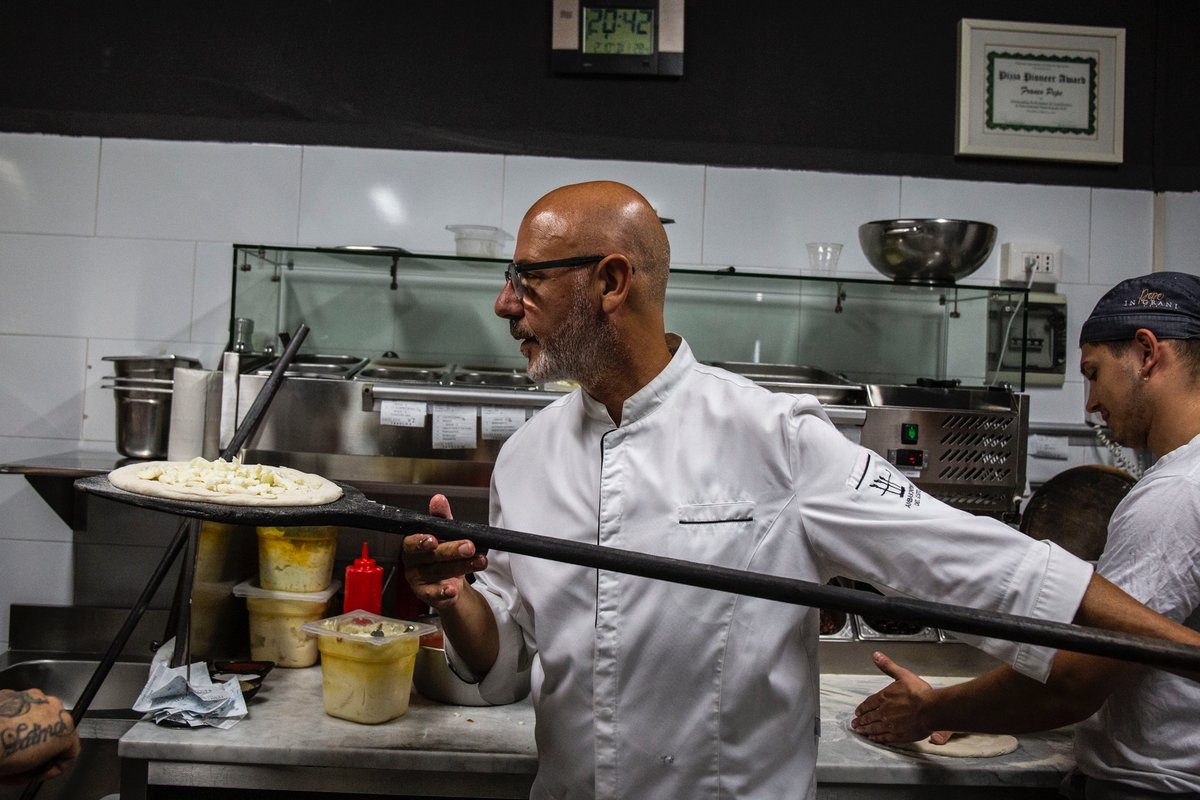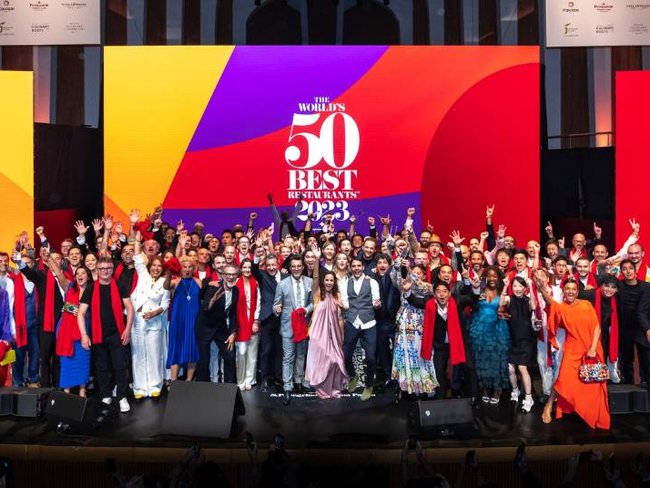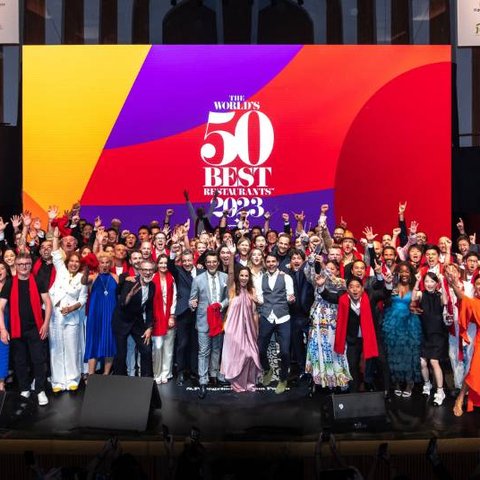Franco Pepe is the owner of Pepe in Grani, a pizzeria located in the heart of Caiazzo, a small town in the province of Caserta, Campania, with a population of just five thousand people. Yet every evening, Pepe manages to serve about five hundred guests, a feat that earned him the prestigious title of Knight of the Italian Republic, awarded by Republic President Sergio Mattarella. His journey to becoming one of the world’s most renowned pizzaiolos is a story of passion, research, and innovation.
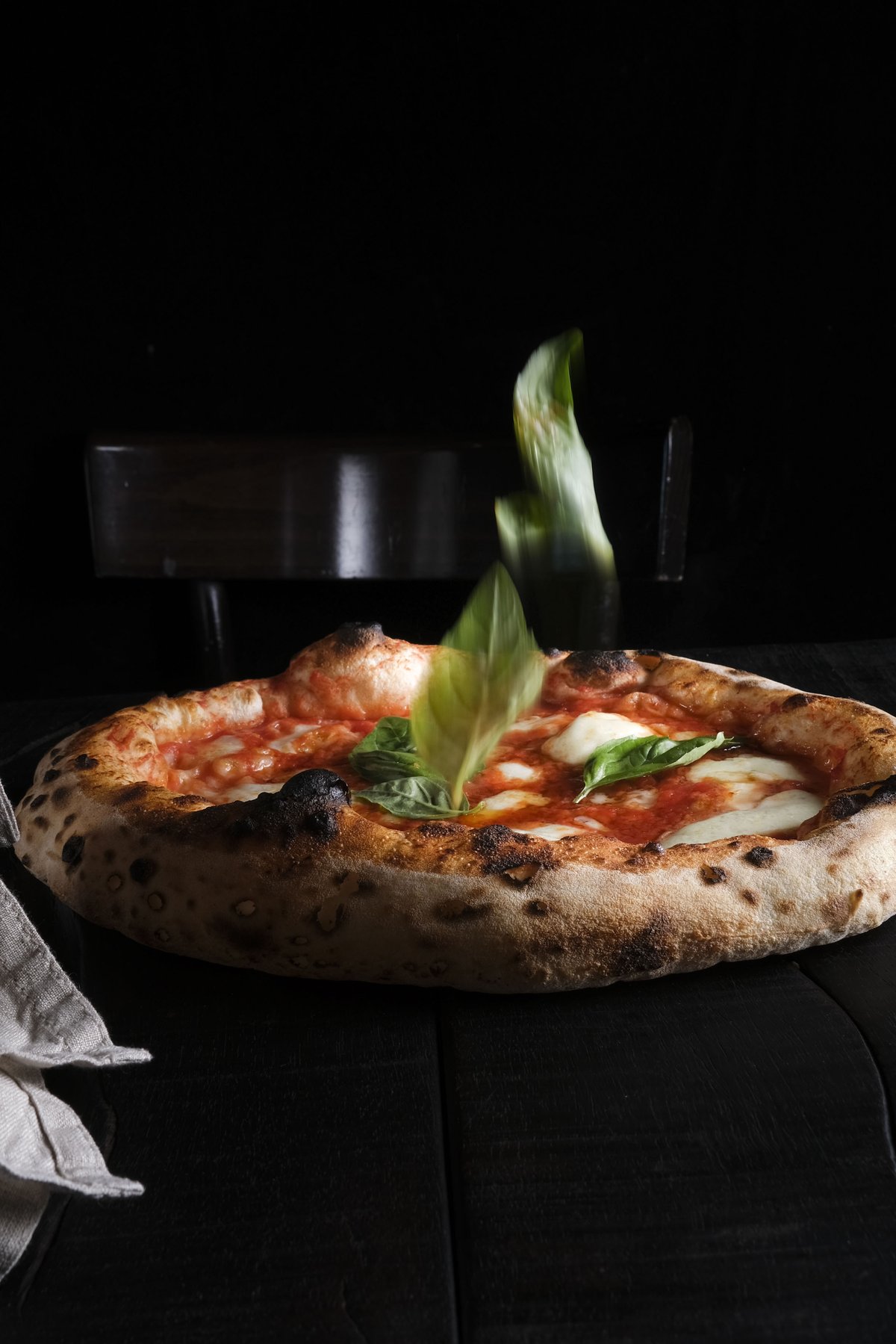
When did your love for pizza first begin?
It wasn't love at first sight. I used to be a physical education teacher, also specialized in special needs education. While I was teaching, I would help my father at the family pizzeria. When I suddenly lost my father, I realized that making a good pizza, receiving a smile or a compliment from a customer, gave me emotions I had never experienced while teaching. Those emotions pushed me to change direction and fully dedicate myself to the world of pizza.
How did Pepe in Grani come about?
Pepe in Grani was born from a deep personal need, a project I felt within me. I listened closely to customers and understood it was time to elevate pizza to a new level. My idea was to transform the pizzeria into a meeting place, a "slow" concept where time and quality become the main focus. I invested heavily in staff training and wanted to restore dignity to the profession of pizzaiolo, traditionally seen as exhausting and demanding, by turning the pizzeria into an inn that values patience and careful preparation.
What's the secret behind your dough?
My dough is based on a recipe from the 1930s, inherited from my grandfather. My family never stopped baking bread, and when I decided to create Pepe in Grani, I worked to develop a blend of grains, which I now call "zero Pepe," selected by me. I use untreated grains that ensure a dough with a low glycemic index and high digestibility. This attention to quality and health is something customers feel, even if they may not always consciously recognize it.
What’s your favorite pizza?
Many people ask me what my favorite pizza is, but I must say it’s not one of my own creations. The Escarole Calzone, made by my father Stefano just for himself and a few close friends, is my favorite. The aroma and taste of that calzone, in its simplicity, remain unmatched for me. Although I’ve been awarded for many of my pizzas, that calzone continuously motivates me to improve and push my boundaries.
What do you aim to convey with your pizza?
Through pizza, I want to tell a story about a region and nourish people. There's extensive research behind every ingredient and every product. Today, pizza isn’t just a meal; it’s a way to communicate values, educate people about good food, and promote respect for the environment. As Carlin Petrini says, “We are what we eat,” and I strongly support this idea. It’s not just about gathering together, but about eating consciously. I’ve collaborated with universities and AIRC in Milan and Italy to develop pizzas that meet health and sustainability criteria, earning their certification on seven pizzas.
What does Italian genius mean to you?
Italian genius is like a cocktail of skills, creativity, and intuition. In the Italian spirit, I see that extra "something," that ability to combine expertise with intuition. Receiving the honor of Officer of the Italian Republic is a great privilege, but for me, it's also a way to send a message to the younger generation: even a humble path, like that of a baker or pizzaiolo, can lead to important achievements and institutional recognition.
What does Italian pizza represent in the world today?
When we talk about pizza, without sounding arrogant, we can say that pizza is Italy. Today, it’s one of the most consumed meals globally, which brings great responsibility to us pizzaiolos. The way pizza is made has changed compared to the past, and we must live up to global expectations.
What will the pizza of the future be like?
Pizza of the future will be more “responsible.” Healthy pizza. There will be more focus on the research of raw materials and sustainability. In a world marked by wars and droughts, finding certain ingredients is becoming increasingly difficult. However, pizza can be a means to preserve a territory. In Caiazzo, where there were once about forty farmers, there are now forty companies. I’ve sought to help the land, protect certain products, and save our biodiversity.
What are your future plans?
My future will be dedicated to education, particularly for young people who feel they don’t have a future. I want to give them the tools to build a career, so they can believe in their abilities and achieve their goals.
Altri articoli
-
 GeniusL’innovazione tecnologica al servizio dell'elicicoltura: la storia di Tenuta Il Nibbiodi Redazione
GeniusL’innovazione tecnologica al servizio dell'elicicoltura: la storia di Tenuta Il Nibbiodi Redazione26 November 2024 -
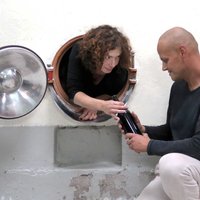 GeniusSyntropy, according to Giorgio Mercandellidi Isotta Rosboch
GeniusSyntropy, according to Giorgio Mercandellidi Isotta Rosboch11 November 2024 -
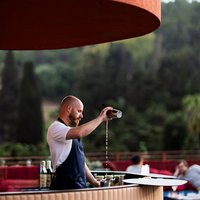 GeniusIl nuovo rooftop bar toscano che ha dedicato la sua intera drink list al Caravaggiodi Giacomo Iacobellis
GeniusIl nuovo rooftop bar toscano che ha dedicato la sua intera drink list al Caravaggiodi Giacomo Iacobellis30 October 2024

